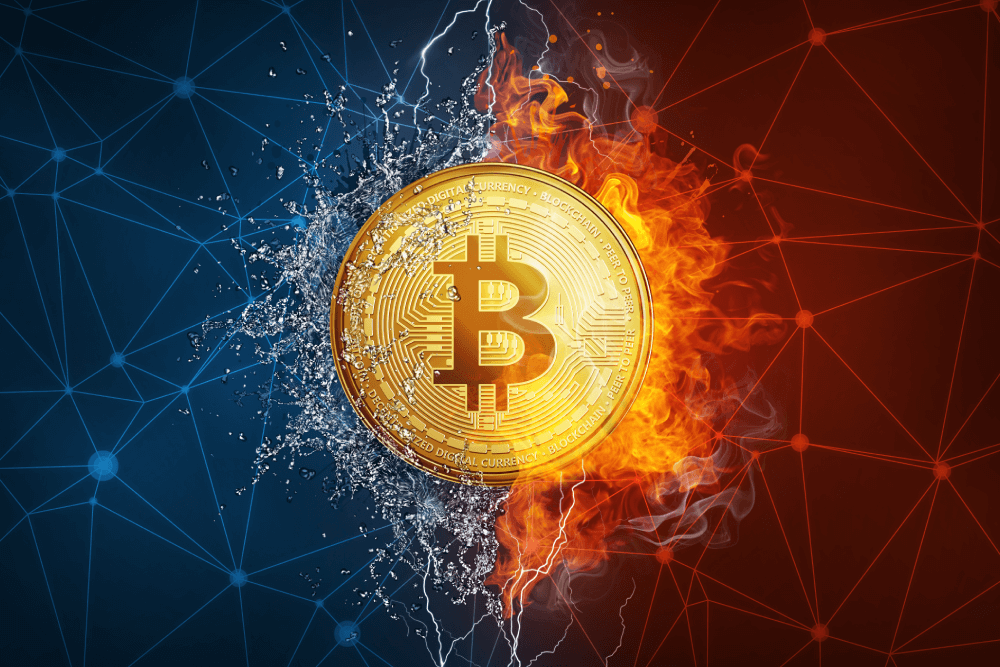
Bitcoin is a cryptocurrency that has been making waves lately. It is unique in that it is not regulated by any government or financial institution. Instead, it is regulated by a peer-to-peer network. This makes it a very secure form of currency.
In this blog post, we will discuss what Bitcoin is, how the bitcoin network works, and some of the benefits of using bitcoin exchanges.
What is Bitcoin?
It is a widely used cryptocurrency in a global context. a Bitcoin transaction enables users to exchange digital currency and cash online securely. It was created in 2008 by Satoshi Nakamoto. This pseudonymous individual described Bitcoin's capabilities in his book. It has a simple idea: Bitcoin allows for safe peer-to-peer online transactions, basically an alternative to traditional currencies.
Who is Satoshi Nakamoto?
Nobody is claiming to be the creator of bitcoin. Satoshi Nakamoto is the person whose original bitcoins were released in 2008 and who worked for the original Bitcoin software released in 2009. Since then many individuals have reportedly said they were reportedly based on the pseudonym and the identity of Satoshi Nakamoto is still obscure. Although there is a temptation to believe media claims of Satoshi Nakakamoto being a solitary genius who invented cryptocurrency out of thin air, these developments rarely occur in a vacuum.
Peer-to-Peer Technology
Bitcoin was among the first digital currencies to use peer-to-peer (P2P) technology for facilitating instant payment. Independent individuals and firms who control the governed computational power and take part in bitcoin networks are responsible for processing the transactions on the blockchain and are motivated by rewards and transaction fee. This is an authority who enforces cryptocurrencies' integrity in decentralized systems. New bitcoin coins will arrive at mining sites at a fixed but periodically dropping price. Bitcoin has an estimated 21 million mining potential.

What makes Bitcoin a new kind of money?
Bitcoins are global. The money can be sent anywhere on Earth just like you could pay cash in the physical universe. It's not closed for the weekdays it does not charge you fees to use it does not set any limits.
Bitcoins are irreversible. Unlike other forms of financial currency, Bitcoin transactions are reversed. Credit card payments are often reversible after payment and sometimes months after the first transaction by the intermediaries that are completing the transaction. This increases merchant risk and increases fees for use of a credit card and causing more fraud.
How Bitcoin works?
Contrary to the banks and banks, the Bitcoin currency does not have the power to be owned by an individual. Bitcoin is the world's first completely free online payments platform. All users must be connected. Bitcoin has a purpose for being widely available via Internet, but has no bank or private company processing transactions.
Bitcoin's blockchain has many important features similar to banks in the manner they track assets like the bank. The decentralized nature and simplicity of the Blockchain makes this a unique technology that no bank has to control.
Privacy and fungibility
Bitcoin is a pseudonym which means funds aren't tied directly to a real entity. All bitcoin transactions on the Blockchain have been made private. Similarly, transactions can link to individual and firm by establishing "idioms of use" — (e.g., transactions that spend coins on multiple inputs indicate that inputs have common owners — as well as confirming public transactions with known information).
A bitcoin exchange collects personally identifiable data from users based on their transactions with traditional currency or another cryptocurrency.
What is bitcoin mining?
Mining works on keeping the network up as well to bring in new coins. All transactions are publicly broadcast and miners combine large collections in blocks by completing cryptographic computations difficult to generate but easily verified.
The first mining expert to solve the next block transmits the data to the network whose results are verified and added to the Blockchain. Bitcoin miners will receive bonus bitcoins in exchange for the money they have created. In the bitcoin software, there are 21 million coin limits. This cannot be achieved.
Can bitcoin be converted into cash?
Bitcoin can be exchanged in monetary terms as much as any other asset. The cryptocurrency market is thriving online, but transactions can also be carried out by phone on any platform, even with small enterprises accepting cryptocurrency. Bitcoin does not feature any official mechanism for changing its exchange rate. No intrinsic value is underlying bitcoin networks. However this applies to many of the more stable international currencies after leaving the Gold standard including the United States dollar.
Risks associated with Bitcoin Investing
Speculative investors are drawn by Bitcoins rapid rise in value. Most of us buy bitcoin because of their investments instead of their potential to act as a trading platform. However it lacks guarantees of quality despite the digital nature. Purchasing and using this product carries varying risks.
Regulation risks
The investment in Bitcoin can be risky even for novice investors. Bitcoins compete with other currencies and are often employed in illegal transactions on the Internet or for tax fraud. Moreover, governments could try to regulate the use, restrict, or ban Bitcoin. Some have various guidelines. In addition, a 2014 law was finalized in order for the Department to collect and maintain information about customers using Bitcoin and maintain the security of the information it holds about the user.
Insurance risks
Certain investments are regulated by the Securities Investment Protection Corporation (IPC.com). Normal bank account coverage may be obtained through the Federal Deposit Protection Corporation or FSDIC depending upon jurisdiction and the amount. Bitcoin exchange and Bitcoin accounts generally cannot be guaranteed through any federal and state program.
Security risks
Many users of Bitcoin haven't bought tokens through mining activities. The company buys and sells bitcoin on all popular online markets such as the bitcoin exchange or the cryptocurrency exchange. Bitcoin is completely digital and is vulnerable to hacking attacks. The thieves may use Bitcoin as cash or transfer it to an account in which the stolen currency has not already been deposited.
Bitcoin Transactions and Bitcoin Wallet
How can I buy Bitcoin?
Most buyers of Bitcoin use crypto exchange. Exchanges can buy or sell cryptocurrency for money or other currencies. Setting up an account is just like opening a brokerage account. The most important Exchange is Coinbank, Kraken and Gemini. Buy Bitcoins from a broker such as Robinhood. If a user buys bitcoins, he will have a Bitcoin wallet. Those are called warm wallets and cold wallets. A Hot Wallet (also known as a wallet online) is stored in the Cloud.
Wallets
Wallets contain the data required in order for bitcoin transactions. Despite wallets being frequently described for keeping bitcoins in storage due to their system nature, bitcoin transactions cannot be separated from the blockchain ledger.
A wallet is ideally described as something which enables a user to access and use the cryptocurrency.
Bitcoin uses public-key cryptography, a cryptographic technique where public and private key are created. [61] The basics are that the wallet contains all the necessary keys to access these keys in an electronic device.
The bitcoin system has become one of the most popular forms of virtual currencies and has caused many economists to assert that financial transactions will never be the same.
